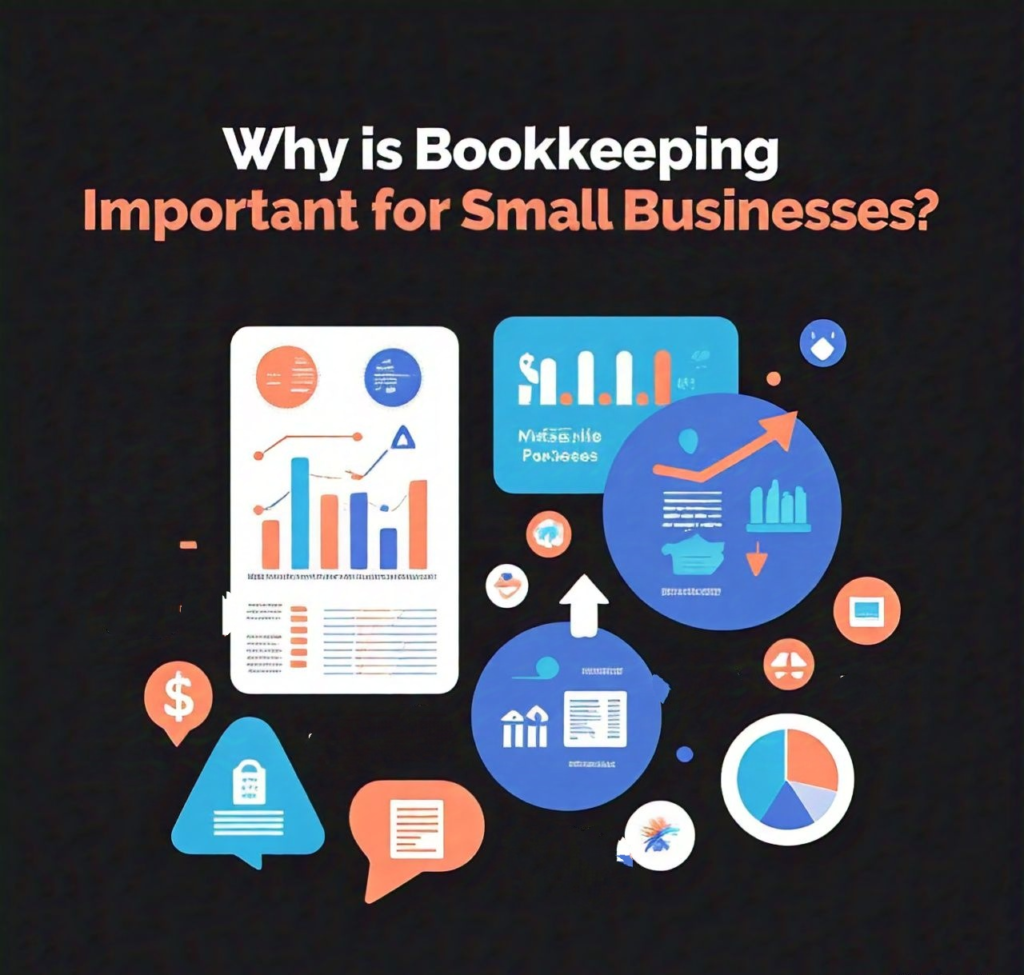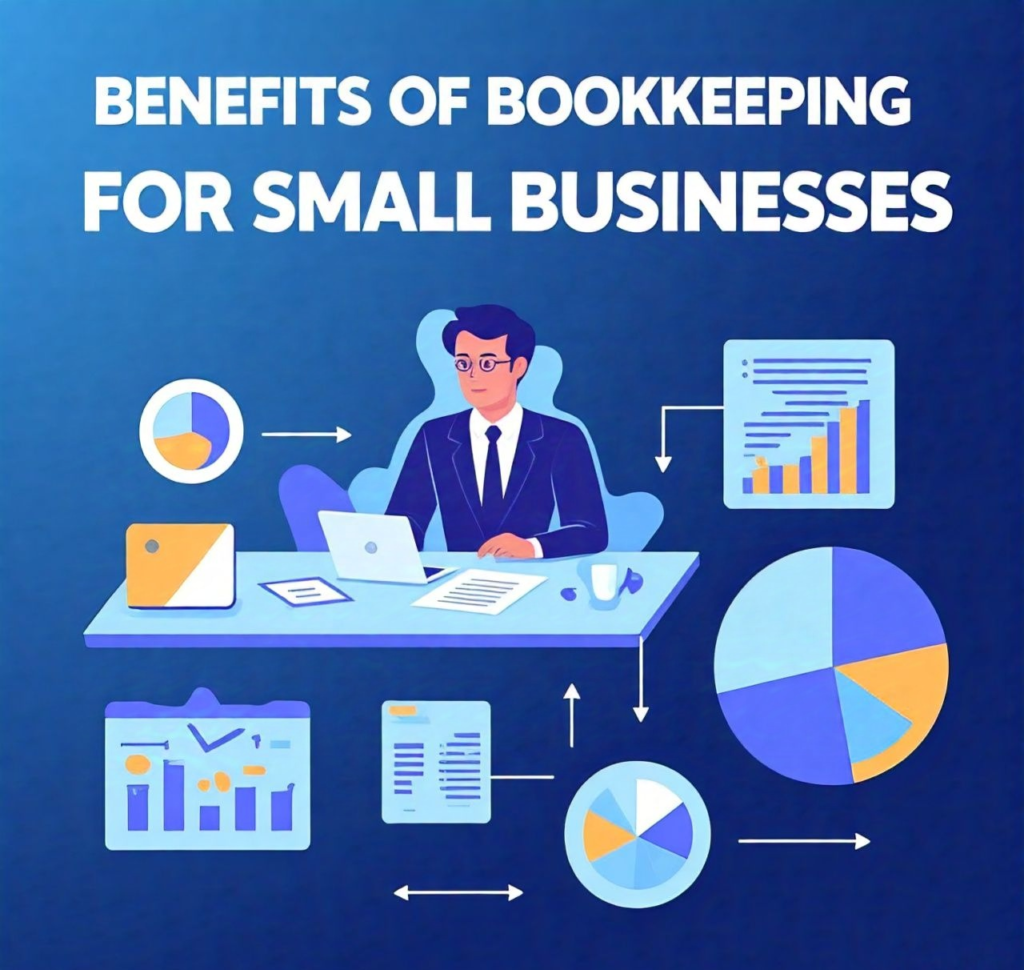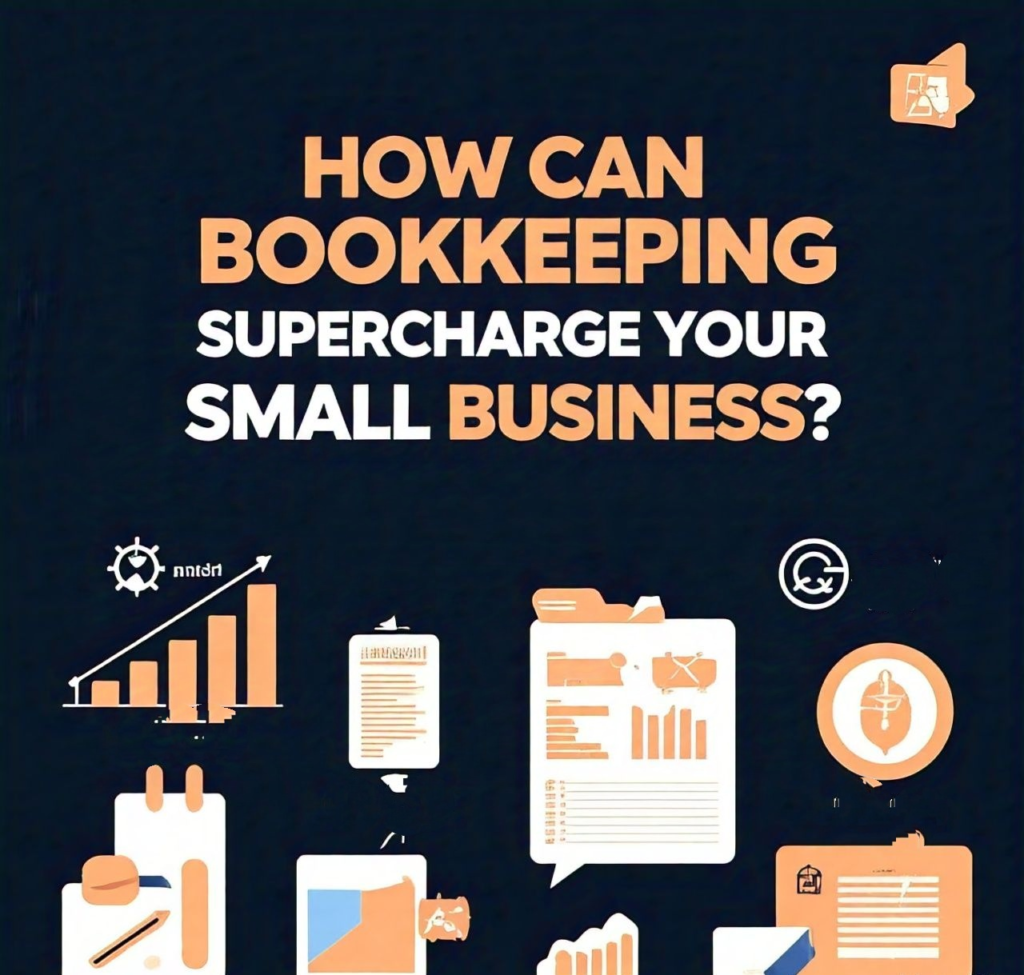SUPERCHARGE AND REVOLUTIONIZE YOUR FINANCE: 5 kEYS ON HOW BOOKKEEPING SUPERCHARGE YOUR SMALL BUSINESS
As a small business owner in Canada, managing your finances effectively is crucial to driving growth, increasing profitability, and achieving long-term success. One essential aspect of financial management is bookkeeping, which provides a clear picture of your company’s financial health. In this article, we’ll explore how bookkeeping can supercharge your small business, and provide practical tips and solutions to help you get started.
WHAT IS BOOKKEEPING?
Bookkeeping is the process of recording, classifying, and reporting financial transactions and events of a business. It involves tracking income, expenses, assets, liabilities, and equity, and providing accurate and timely financial information to stakeholders.
WHY IS BOOKKEEPING IMPORTANT FOR SMALL BUSINESSES?

Bookkeeping is essential for small businesses because it:
1. Provides financial clarity: Bookkeeping helps you understand your company’s financial position, making it easier to make informed decisions.
2. Improves cash flow management: By tracking income and expenses, you can identify areas to optimize cash flow and avoid financial difficulties.
3. Enhances financial reporting: Bookkeeping enables you to generate accurate financial statements, such as balance sheets and income statements.
4. Supports tax compliance: Bookkeeping helps you meet tax obligations, reducing the risk of penalties and fines.
5. Facilitates budgeting and forecasting: By analyzing financial data, you can create realistic budgets and forecasts, driving business growth.
BENEFITS OF BOOKKEEPING FOR SMALL BUSINESSES

Here are the benefits of bookkeeping for small businesses:
I. Provides Financial Clarity
1. Accurate financial records: Bookkeeping helps small businesses maintain accurate and up-to-date financial records, providing a clear picture of their financial situation.
2. Financial transparency: Bookkeeping enables small businesses to track their income, expenses, assets, liabilities, and equity, providing transparency into their financial operations.
3. Informed decision-making: With accurate financial records, small businesses can make informed decisions about investments, funding, and resource allocation.
II. Improves Cash Flow Management
1. Cash flow tracking: Bookkeeping helps small businesses track their cash inflows and outflows, enabling them to manage their cash flow effectively.
2. Identify cash flow problems: Bookkeeping enables small businesses to identify cash flow problems early, allowing them to take corrective action.
3. Optimize cash flow: Bookkeeping helps small businesses optimize their cash flow by identifying areas to improve cash inflows and reduce cash outflows.
III. Enhances Financial Reporting
1. Accurate financial statements: Bookkeeping enables small businesses to generate accurate financial statements, including balance sheets, income statements, and cash flow statements.
2. Compliance with regulatory requirements: Bookkeeping helps small businesses comply with regulatory requirements, such as tax filing and financial reporting.
3. Stakeholder confidence: Accurate financial reporting helps build confidence with stakeholders, including investors, lenders, and customers.
IV. Supports Tax Compliance
1. Accurate tax records: Bookkeeping helps small businesses maintain accurate tax records, reducing the risk of tax errors and penalties.
2. Tax planning and optimization: Bookkeeping enables small businesses to plan and optimize their tax strategy, minimizing tax liabilities.
3. Compliance with tax regulations: Bookkeeping helps small businesses comply with tax regulations, including tax filing and payment deadlines.
V. Facilitates Budgeting and Forecasting
1. Accurate financial data: Bookkeeping provides small businesses with accurate financial data, enabling them to create realistic budgets and forecasts.
2. Budgeting and forecasting: Bookkeeping helps small businesses create budgets and forecasts that align with their business goals and objectives.
3. Financial planning: Bookkeeping enables small businesses to engage in financial planning, identifying areas to improve financial performance and reduce financial risk.
VI. Reduces Financial Stress
1. Financial clarity: Bookkeeping provides small businesses with financial clarity, reducing financial stress and uncertainty.
2. Improved cash flow management: Bookkeeping helps small businesses manage their cash flow effectively, reducing the risk of cash flow problems.
3. Accurate financial reporting: Bookkeeping enables small businesses to generate accurate financial reports, reducing the risk of financial errors and penalties.
VII. Increases Profitability
1. Accurate financial data: Bookkeeping provides small businesses with accurate financial data, enabling them to identify areas to improve profitability.
2. Cost reduction: Bookkeeping helps small businesses identify areas to reduce costs, improving profitability.
3. Revenue growth: Bookkeeping enables small businesses to identify areas to increase revenue, driving business growth and profitability.
HOW CAN BOOKKEEPING SUPERCHARGE YOUR SMALL BUSINESS?

Bookkeeping can supercharge your small business in several ways:
Effective Financial Management
1. Accurate Financial Records: Bookkeeping provides a clear picture of your company’s financial health.
2. Informed Decision-Making: Reliable financial data enables informed decisions on investments, funding, and resource allocation.
Increased Efficiency
1. Streamlined Operations: Bookkeeping helps identify areas for process improvement, reducing waste and increasing productivity.
2. Automated Tasks: Implementing bookkeeping software automates tasks, freeing up time for strategic planning and growth.
Improved Cash Flow
1. Timely Invoicing and Payments: Bookkeeping ensures prompt invoicing and follows up on payments, maintaining a healthy cash flow.
2. Optimized Accounts Receivable and Payable: Bookkeeping helps manage accounts receivable and payable, reducing late fees and penalties.
Enhanced Scalability
1. Data-Driven Growth Strategies: Bookkeeping provides insights into revenue streams, expenses, and profit margins, informing growth strategies.
2. Compliance and Regulatory Management: Bookkeeping ensures compliance with tax laws and regulatory requirements, mitigating risks and penalties.
Better Risk Management
1. Identification of Financial Risks: Bookkeeping helps identify potential financial risks, enabling proactive mitigation strategies.
2. Implementation of Internal Controls: Bookkeeping establishes internal controls, safeguarding assets and preventing fraud.
By implementing effective bookkeeping practices, small businesses can supercharge their financial management, increase efficiency, improve cash flow, enhance scalability, and better manage risks.
PRACTICAL TIPS FOR IMPLEMENTING BOOKKEEPING IN YOUR SMALL BUSINESS

Implementing bookkeeping in your small business is crucial for tracking finances, making informed decisions, and ensuring long-term success. Here are some practical tips to help you get started:
1. Set Up a Bookkeeping System
- Choose an accounting method: Decide between cash-based or accrual-based accounting.
- Select bookkeeping software: Popular options include QuickBooks, Xero, and Wave.
- Set up a chart of accounts: Organize your accounts into categories (e.g., assets, liabilities, expenses).
2. Categorize and Record Transactions
- Categorize transactions: Assign each transaction to a specific account (e.g., rent, utilities, supplies).
- Record transactions regularly: Set aside time each week to record transactions.
- Use invoicing and payment tracking: Streamline invoicing and payment tracking with tools like FreshBooks or Zoho Invoice.
3. Manage Cash Flow
- Track cash inflows and outflows: Monitor cash flow to identify trends and potential issues.
- Create a cash flow forecast: Predict future cash flow to make informed decisions.
- Prioritize cash flow management: Regularly review and adjust your cash flow management strategy.
4. Reconcile Accounts and Prepare Financial Statements
- Reconcile accounts regularly: Verify account balances to ensure accuracy.
- Prepare financial statements: Generate balance sheets, income statements, and cash flow statements.
- Analyze financial statements: Use financial statements to identify trends, strengths, and weaknesses.
5. Seek Professional Help When Needed
- Consult a bookkeeper or accountant: Get expert advice on bookkeeping and financial management.
- Outsource bookkeeping tasks: Consider hiring a bookkeeper or accounting service to save time.
- Stay up-to-date with bookkeeping best practices: Attend workshops, webinars, or online courses to improve your bookkeeping skills.
By following these practical tips, you’ll be able to implement a effective bookkeeping system in your small business, ensuring accurate financial tracking, informed decision-making, and long-term success.
COMMON BOOKKEEPING MISTAKES TO AVOID

1. Inaccurate Or Incomplete Records: Ensure that financial records are accurate, complete, and up-to-date.
2. Failure To Reconcile Accounts: Regularly reconcile bank and credit card statements to ensure accuracy.
3. Inadequate Financial Reporting: Regularly generate financial reports to provide stakeholders with a clear understanding of your company’s financial health.
4. Insufficient Cash Flow Management: Monitor cash flow regularly to identify areas to optimize.
5. Non-Compliance With Tax Regulations: Ensure that your business meets all tax obligations, including filing tax returns and paying taxes on time.
FREQUENTLY ASKED QUESTIONS
General Bookkeeping Questions
- What is bookkeeping, and why is it important for small businesses?
Bookkeeping is the process of recording, classifying, and reporting financial transactions and events of a business. It’s essential for small businesses because it provides financial clarity, improves cash flow management, and enhances financial reporting.
- What are the different types of bookkeeping systems?
There are two main types of bookkeeping systems: single-entry and double-entry. Single-entry bookkeeping records each transaction once, while double-entry bookkeeping records each transaction twice, once as a debit and once as a credit.
- What are the benefits of cloud-based bookkeeping software?
Cloud-based bookkeeping software provides real-time access to financial data, automates financial tasks, enhances collaboration with accountants and bookkeepers, and reduces the risk of data loss.
Bookkeeping for Small Businesses
- Why is bookkeeping important for small businesses?
Bookkeeping is crucial for small businesses because it helps them manage their finances effectively, make informed decisions, and achieve long-term success.
- How can bookkeeping help small businesses improve their cash flow management?
Bookkeeping helps small businesses track their cash inflows and outflows, identify areas to optimize cash flow, and make informed decisions about investments and funding.
- What are the most common bookkeeping mistakes made by small businesses?
Common bookkeeping mistakes made by small businesses include inaccurate or incomplete records, failure to reconcile accounts, inadequate financial reporting, and non-compliance with tax regulations.
Implementing Bookkeeping in Your Small Business
- How do I choose the right bookkeeping system for my small business?
To choose the right bookkeeping system, consider your business needs, the type of financial transactions you engage in, and the level of complexity you’re comfortable with.
- What are the steps to implement bookkeeping in my small business?
To implement bookkeeping in your small business, set up a chart of accounts, record financial transactions, reconcile accounts, generate financial reports, and review and adjust your bookkeeping system regularly.
- How can I ensure that my bookkeeping system is accurate and reliable?
To ensure that your bookkeeping system is accurate and reliable, regularly review and reconcile your financial records, use accounting software to automate financial tasks, and consult with a financial advisor or accountant.
Bookkeeping and Tax Compliance
- How can bookkeeping help me comply with tax regulations?
Bookkeeping helps you comply with tax regulations by providing accurate financial records, tracking tax-deductible expenses, and generating financial reports that support tax compliance.
- What are the tax implications of not having a proper bookkeeping system?
Not having a proper bookkeeping system can lead to tax errors, penalties, and fines, as well as missed tax deductions and credits.
- How can I use bookkeeping to minimize my tax liability?
To minimize your tax liability, use bookkeeping to track tax-deductible expenses, generate financial reports that support tax planning, and consult with a tax professional or accountant.
Bookkeeping and Financial Reporting
- What are the different types of financial reports that I can generate using bookkeeping?
Using bookkeeping, you can generate financial reports such as balance sheets, income statements, cash flow statements, and accounts payable and accounts receivable reports.
- How can I use bookkeeping to analyze my business’s financial performance?
To analyze your business’s financial performance, use bookkeeping to generate financial reports, track key performance indicators (KPIs), and consult with a financial advisor or accountant.
- What are the benefits of using bookkeeping to generate financial reports?
Using bookkeeping to generate financial reports provides accurate and timely financial information, enhances financial transparency, and supports informed decision-making.
CONCLUSION
In conclusion, bookkeeping is a powerful tool that can supercharge your small business by providing financial clarity, improving cash flow management, and enhancing financial reporting. By implementing effective bookkeeping practices, you can make informed decisions, optimize financial performance, and achieve long-term success.
Bookkeeping is also a critical component of financial management for small businesses. By implementing effective bookkeeping practices, you can supercharge your business, drive growth, and achieve long-term success. Remember to avoid common bookkeeping mistakes, and consider consulting with a financial advisor or Canada tax expert to ensure your business is meeting all financial obligations.
KEY TAKEAWAYS
1. Bookkeeping is essential for small businesses to manage their finances effectively.
2. Accurate and timely financial information is critical for making informed decisions.
3. Bookkeeping helps small businesses improve cash flow management, reduce financial stress, and increase profitability.
4. Effective bookkeeping practices enable small businesses to comply with tax regulations, minimize tax liability, and maximize tax deductions.
5. Bookkeeping provides a solid foundation for financial reporting, analysis, and planning.
CALL TO ACTION
Book a consultation with our financial advisor in Ontario at [email protected] to discuss your bookkeeping needs and develop a personalized financial plan for your small business.
To revolutionize your finance and supercharge your small business, take the following steps:
1. Implement a cloud-based bookkeeping system that meets your business needs.
2. Set up a chart of accounts and record financial transactions accurately.
3. Reconcile accounts regularly and generate financial reports.
4. Analyze financial performance and make informed decisions.
5. Consult with a financial advisor or accountant to ensure compliance with tax regulations and optimize financial performance.
FINAL THOUGHTS
Bookkeeping is not just a necessary task for small businesses; it’s a powerful tool that can drive financial success. By prioritizing bookkeeping and implementing effective practices, you can supercharge your small business, achieve financial clarity, and unlock long-term growth and profitability.
ABOUT AUTHOR
Shanel John is a dedicated Certified Public Accountant (CPA) at G.L.H. Accounting, specializing in Income Tax with 10 years of experience. Based in Brampton, Ontario, Canada, Shanel offers expertise in tax preparation, financial accounting, and advisory services. A certified QBO Pro Advisor, Shanel’s decade-long experience and knowledge make her a trusted figure in the accounting field.
ADDITIONAL RESOURCES
Here are some relevant links to help you revolutionize your finance and supercharge your small business:
– Xero: https://www.xero.com/
BOOKKEEPING THE BACKBONE OF A SUCCESSFUL BUSINESS: https://glhaccounting.ca/backbone-of-a-successful-business/

